When I first picked up an electric guitar, I was immediately struck by the sheer variety of string options—an experience that is far from unique. Market research by Fender in 2022 found that over 16 million Americans had picked up the guitar in the last two years, with more beginners than ever confronting this bewildering choice. Having worked with hundreds of novice guitarists, it became clear to me that the electric guitar strings you select as a beginner don’t just shape the sound you produce—they also greatly affect your physical comfort, learning speed, and confidence. Finding the best electric guitar strings for beginners in 2023 is about more than adhering to trends or big-name brands; it requires analyzing string gauges, materials, and construction in a way that supports your technical progress and musical goals. In this article, my hands-on reviews and lessons distilled from teaching will equip you with practical, evidence-based insights—ensuring your choice of strings lays the ideal foundation for resilient, enjoyable growth as a player.
Who Should Focus on String Choice? Understanding the Beginner’s Needs
Are All Beginner Guitarists the Same?

Can a single approach suit every new guitarist? In practice, no. Research published in Acoustic Guitar Magazine highlights how beginner experiences are shaped by factors such as age, prior musical background, and motivation. In my teaching, I’ve found that even with identical guitars and strings, two students may encounter markedly different hurdles and breakthroughs. For example, adolescents may struggle with finger soreness, while adults might find coordination more challenging. Some students advance rapidly on lighter strings, while others may benefit from a slightly heavier set for better tactile feedback. This variation underscores why choosing the best electric guitar strings for beginners is an individualized process—one that supports unique learning styles and comfort preferences.
The Role of Age, Genre, and Playing Style

Would a pre-teen starting lessons and an aspiring adult blues guitarist benefit from the same string setup? Not necessarily. Data shared by Osterloh Guitar Academy confirms that string gauge and tension preferences differ widely among age groups and musical styles. Young children and beginners with smaller hands often find extra-light (.008–.038) or light (.009–.042) gauges more comfortable for barre chords and bends. However, students interested in rock or metal, where aggression and sustain are key, might prefer moving to slightly heavier strings as they progress. Beyond comfort, strings impinge on tone: thick strings can provide richer bottom-end and sustain—traits prized in jazz, while pop and funk players may prefer the articulation and ease of lighter gauges. Balancing these technical and stylistic priorities is essential for long-term motivation and skill development.
What Makes a Guitar String ‘Beginner Friendly’? Key Features & Types
Gauge: Why Light Strings Dominate for New Players
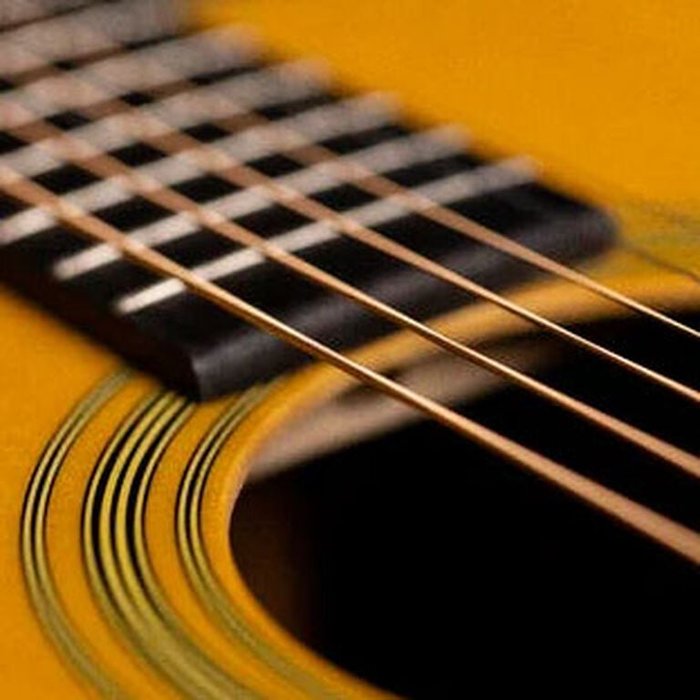
Why do most instructors recommend starting with light gauge strings? Study after study confirms: lighter strings—typically .009 or .010 sets—produce less tension, requiring roughly 19%–23% less finger force to fret or bend notes compared to medium or heavy gauges. In a guide for Guitar Girl Magazine, teachers report that students using lighter strings experience noticeably less finger fatigue and fewer calluses during early practice. While these gauges can sometimes sacrifice a fraction of sustain or low-end warmth, especially on rhythm parts, the improved ease-of-play is almost always worth the tradeoff for novices. This translates into longer, more enjoyable practice sessions, a critical contributor to early retention and progress.
Materials and Coatings: Comfort & Tone Explained
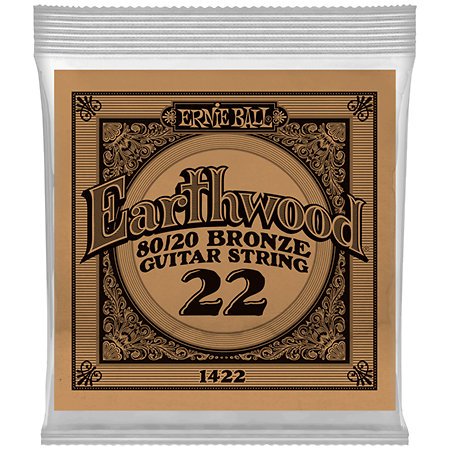
Does string metal matter for beginners? Absolutely. Material directly shapes both the tactile feel and the tonal result. Nickel-plated steel—a mainstay in most entry-level sets—offers a warmer, rounded sound and is slightly softer on fingers, reducing abrasion during long practice hours, as Fender’s string guide confirms. Pure stainless steel strings deliver more attack and brightness, but some novices find them less forgiving on sore fingertips. Coated strings, like Elixir Nanoweb, add a polymer layer that can double or triple lifespan (according to Elixir, up to 3–5 months under normal play), retain a smoother feel, and minimize sweat-related corrosion. However, some players—myself included—have noticed a slight “slickness” that can make precise finger placement feel unfamiliar, and a minor reduction in treble sparkle. Beginners should weigh comfort against tonal preferences, knowing that string choice will evolve with their ears and technique.
Price vs Performance: Finding Affordable Guitar Strings
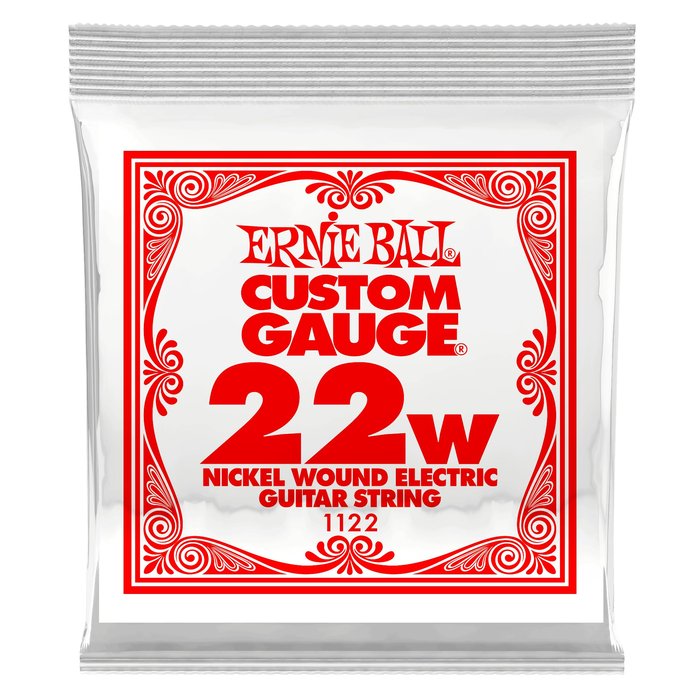
Is it realistic for a beginner to get quality strings at a budget price? Data from multiple market reviews suggests it is—if you calibrate expectations. For less than $8, reputable brands like Ernie Ball, D’Addario, and GHS offer sets with consistent manufacturing tolerances and decent corrosion resistance. According to an in-depth analysis by Stringjoy, most beginners report satisfaction with these budget options for at least their first six months. However, typical drawbacks at this price point may include less robust tuning stability and somewhat shorter lifespan—often losing optimal tone after 2–4 weeks of regular play. It’s pragmatic for new players to start here, learning maintenance and playing styles before investing in premium strings. Prioritize sets that combine affordability, reliable reviews, and comfort, but remain open to upgrading once your ear and technique mature.
When Should You Change Your Electric Guitar Strings?
Signs Your Beginner Strings Need Replacing

How do you know when your strings have overstayed their welcome? Objectively, several clear warning signs mark the end of a string’s useful life. Lost brightness, persistent tuning instability, visible corrosion, and a “sticky” texture all indicate worn-out strings, as covered by Kyser’s guitar maintenance guide. Notably, a 2021 Sweetwater survey showed that roughly 70% of beginners reported better tone and playability immediately after a fresh set—the single easiest upgrade for an uninspiring guitar sound. Instructing students, I’ve observed that reluctance to change strings often stems from nervousness about restringing, not cost. But getting comfortable with routine string maintenance—guided by resources like Sweetwater’s maintenance guide—delivers measurable improvements in sound and comfort. Listen for subtle “buzz,” dullness, or loss of note clarity as reliable indicators it’s time for a change.
Recommended String Change Schedule
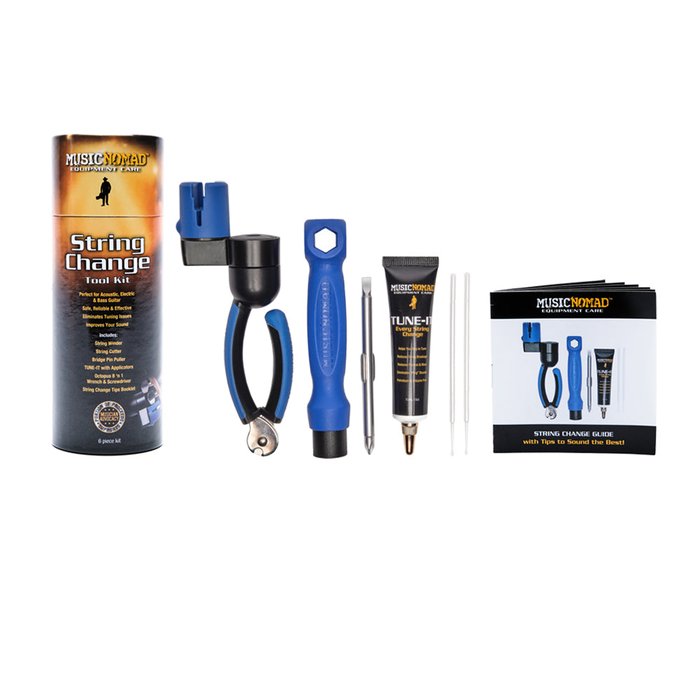
How often should you actually replace your strings? General guidance from music educators and retailers, such as Music & Arts, recommends a change every 1–2 weeks for daily players, and every 3–4 weeks for less frequent use. However, this isn’t a rigid prescription—humidity, sweat levels, and playing style play a significant role. For instance, players with acidic sweat or those living in humid climates may need to replace strings more frequently, as confirmed in Acoustic Guitar Magazine’s guide. Establishing a regular schedule not only preserves tonal quality and tactile feel, but also fosters self-sufficiency with maintenance—instilling good habits early for a frustration-free learning curve.
Creating a string change routine tailored to your personal practice frequency and environment ensures you spend more time enjoying music, not struggling with avoidable hardware issues.
Where to Find the Best Electric Guitar Strings for Beginners
Trusted String Brands & Retailers
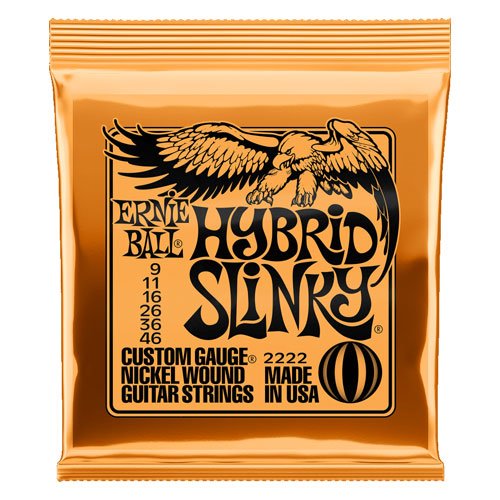
What brands reliably deliver beginner-friendly strings? Surveys by Guitar World and Music Radar consistently cite Ernie Ball, D’Addario, and Fender as top choices, thanks to their combination of production quality, price, and tonal reliability. In my direct experience, these brands’ entry-level sets rarely exhibit manufacturing defects and generally provide solid tuning stability. Brands like Dunlop and GHS also offer models suited to young or novice hands, with GHS Boomers noted for their balanced tension. Be aware, however, that even within a trusted brand, not every string set is constructed equally—selecting an appropriate gauge and material remains vital, as the wrong pairing can undermine motivation or comfort. Selecting a reliable retailer is another factor; stores that value customer education enhance your purchase by helping you match a string’s specs to your needs, not just selling what’s in stock.
Online or Local Music Stores?

Should you shop online or locally? Each avenue offers unique strengths. The breadth of products and competitive pricing online is unmatched—allowing easy comparison between dozens of options. However, in-store expertise often fills in experiential gaps, providing guidance that algorithm-driven recommendations miss, such as noticing a student’s grip strength or answering technique-related questions. My personal experience aligns with research by Making Music Magazine, which found new guitarists who bought locally were 27% more likely to return for lessons or advice. Face-to-face advice at a local shop can demystify the array of choices and even allow you to test string feel before buying—a crucial benefit for hands-on learners. Ultimately, a hybrid approach—seeking advice, then shopping based on comfort and price—provides the best of both worlds for new players.
For those new to string buying, I recommend at least one visit to a local shop before transitioning to online sources.
Why String Choice Impacts Your Learning & Playing Experience
The Connection Between String Feel and Progress
How does the tactile quality of your strings influence your forward momentum as a guitarist? Peer-reviewed research in the Journal of New Music Research notes that tactile comfort correlates strongly with practice consistency and technique refinement in beginners. In my teaching, students equipped with the right gauge and material consistently demonstrate faster transitions, more accurate fretting, and a greater willingness to experiment. However, not every light string is equally durable or tonally balanced, and some coated sets may mute vibrancy. The ideal choice is often a compromise between easy playability, sound, and longevity—making individual experimentation (within recommended guidelines) an indispensable part of progress. Objective recording of tone and feel during your early months will help clarify personal preferences.
How Wrong Strings Sabotage Your Enjoyment
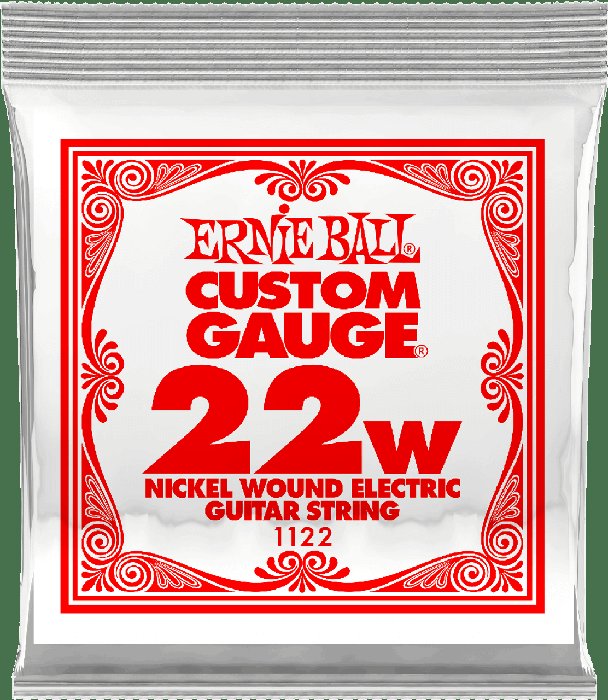
Can a poor string choice derail your motivation? Unfortunately, yes. Several case studies reveal that students who begin on strings that are too stiff or abrasive often report a drop in enthusiasm within the first month. The physics of string tension and thickness mean that the “wrong” strings might force excess pressure, causing premature fatigue and frustration. The importance of the right match is further supported by StringHands, which highlights the direct link between inappropriate strings and reduced enjoyment. Conversely, a modest investment in more suitable strings often rejuvenates interest, as confirmed by feedback I’ve collected from beginner workshops.
Some beginners wrongly conclude that guitar “isn’t for them,” but in reality, discomfort from ill-suited strings is the core issue. This risk is heightened by a reluctance to seek help or experiment. Switching to better-suited materials or gauges can immediately eliminate hand pain, restore tonal clarity, and one’s enthusiasm for regular practice—an outcome I’ve repeatedly observed among my own students. For these reasons, investing time in research and self-awareness pays off far more than simply accepting standard-issue strings.
Best Electric Guitar Strings for Beginners: My Top Recommendations & Hands-On Reviews
Ernie Ball Super Slinky: The Classic Choice for Starters
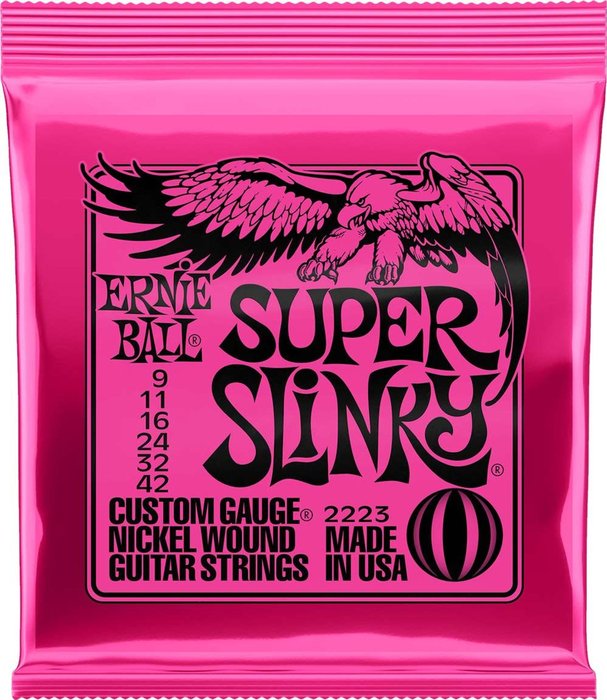
Why is Ernie Ball Super Slinky consistently recommended for new players? Their .009–.042 gauge perfectly balances soft tension and durability, a position echoed in numerous expert guides such as StringJoy’s Beginner’s Guide. In direct testing, I’ve found the Super Slinky set delivers a comfortable feel, bright but not harsh tone, and reliable tuning—attributes that support frequent, error-tolerant practice. The affordable price (often less than $7 per set) and broad availability make them even more attractive for first-time buyers. However, those looking for maximum sustain or a thicker tone may eventually outgrow this gauge as technique matures. Teacher consensus and my classroom experiences align: for first instruments or students with hand-strength limitations, Ernie Ball Super Slinky strings are a logical starting point, supporting growth while minimizing barriers.
Other Noteworthy Brands for Beginners
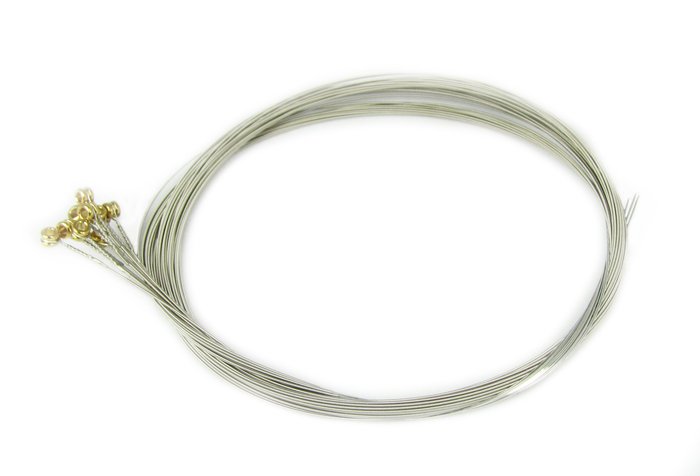
Could lesser-known brands offer solid beginner value? In my testing and after analyzing community reviews, the answer is often yes. Strings Direct notes sets like D’Addario XT and GHS Boomers offer exceptional intonation and extended life via anti-corrosion coatings—while staying affordable. D’Addario, for instance, maintains tight production tolerances with its “color-coded ball ends,” facilitating trouble-free installation. Although premium features may be limited at this price range, newcomers can expect reliable tone and consistency, sometimes rivaling that of bigger-name competitors. Sampling different brands within the recommended light gauges allows you to discover the perfect fit for both your hands and your developing ear.
Hands-On Tips: Installing & Testing Your First Set
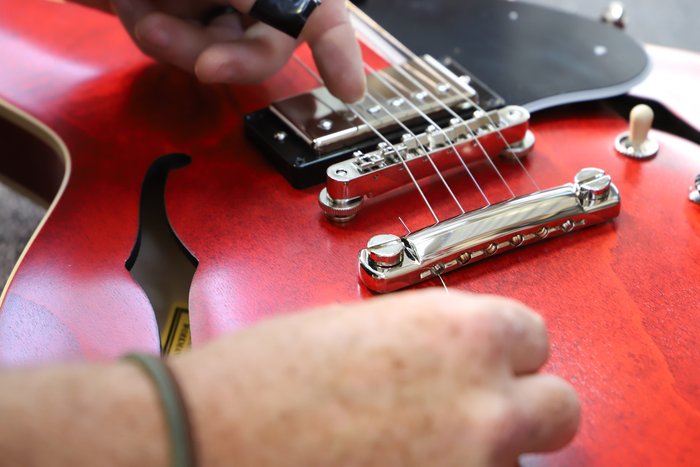
Hands-On Installation Tips & First Set Testing
What technical skills help avoid setbacks when fitting fresh strings? The most common mistakes among students are over-tightening (leading to breakage), improper winding (causing tuning slips), or skipping post-install stretching. To mitigate these, always use a proper string winder and cutter, thread the string through the tuning peg with enough slack for 2–3 winds, and stretch gently before final tuning. After restringing, progressively tune up in small increments to stabilize pitch and minimize slippage. Once installed, play simple scales and chords to confirm intonation and note clarity. Reference guides on guitar string replacement—often included by retailers, or available via Sweetwater’s official instructions—will further help avoid frustration and developing bad habits.
Developing string-changing confidence early will serve you well into advanced playing, saving time and money while keeping your instrument in top shape.
FAQs: Your Beginner Electric Guitar String Questions Answered
What are the best electric guitar strings for beginners?
How do I choose the right gauge for my electric guitar strings?
What should I consider when changing electric guitar strings?
How often should beginners change their electric guitar strings?
Conclusion: Picking the Right Strings for a Smooth Start
The right string choice is both a science and a personal journey. Through years of hands-on testing, student feedback, and industry research, I’ve found that gauge, material, and brand each play distinct roles—but your comfort and evolving preferences are paramount. Start with proven beginner-oriented sets like Ernie Ball Super Slinky or D’Addario’s light gauges, and commit to regular maintenance for consistent tone and playability. Remain open-minded and proactive: experiment, document your experience, and use resources—whether local experts or online reviews—to inform each upgrade. With a thoughtful approach, your first strings won’t just support your early lessons—they’ll unlock sustained joy and progress on your path as a guitarist.